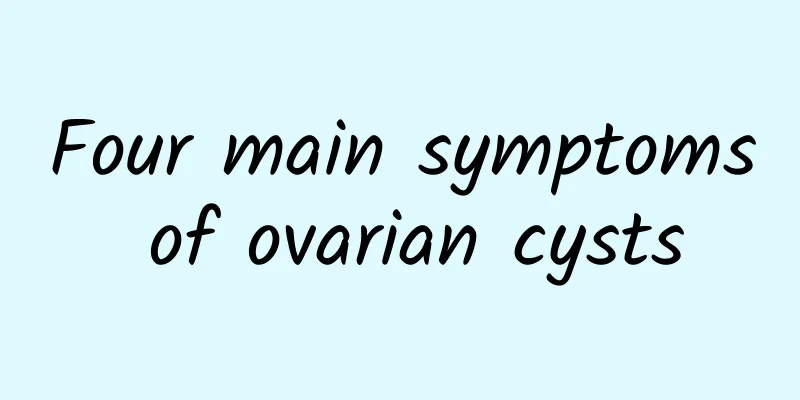What should I do about malignant uterine fibroids? What are the symptoms of malignant uterine fibroids?

|
Generally speaking, uterine fibroids are easy to cure, but some patients have malignant diseases, which will cause patients to suffer a lot of pain and have a great impact on their lives. We don’t know much about this disease and don’t know whether it is benign or malignant, so we need to pay attention to some symptoms. What are the symptoms of malignant uterine fibroids? 1. Patients with malignant uterine fibroids are prone to brown, pink, sticky and smelly vaginal discharge. Second, the symptoms of malignant uterine fibroids include weight loss, lower abdominal pain, back pain, and leg pain. Usually in this case, the cancer tumor will also spread. 3. Irregular vaginal bleeding This is also a very common symptom of malignant uterine fibroids, and bleeding can occur at any time. If a postmenopausal woman has vaginal bleeding similar to menstruation, it indicates the possibility of uterine cancer. Malignant uterine fibroids are extremely harmful, and female friends should be alert: 1. Infertility: Tumor growth deforms the uterus and blocks the entrance to the fallopian tube, which affects the entry of sperm into the fallopian tube and hinders tumor fertilization. Egg implantation can lead to infertility and miscarriage. 2. Vaginal bleeding: Common symptoms of uterine fibroids include excessive menstrual flow, shortened and irregular menstrual cycles, and prolonged duration. According to the location of the fibroids, intramural fibroids and submucosal fibroids are most likely to experience uterine bleeding, while subserosal fibroids are less likely to experience menstrual changes. 3. Abdominal mass: When the fibroids grow larger, a mass can be felt in the lower abdomen. Especially when the bladder is full, the position of the uterus rises and the mass becomes more obvious. 4. Pain: severe abdominal pain, nausea, vomiting, fever, leukocytosis, and tumor compression of nerves can cause radiating pain 5. Compression symptoms: compression of the bladder or urethra, frequent urination, urination disorder, uterine fibroids compressing the rectum and causing defecation disorder Warm reminder: After understanding the symptoms, pay attention to your own changes. If you also have abdominal lumps and vaginal bleeding, you should seek medical attention in time to check what type you belong to and develop a reasonable treatment plan to avoid the disease. |
>>: Are the symptoms of uterine fibroids obvious? How to treat uterine fibroids?
Recommend
If you eat the wrong breakfast, constipation and obesity will follow! Nutritionist Sun Yuming reveals: Golden breakfast for 4 major groups
Breakfast is the source of energy to start the da...
How harmful is cervicitis?
Gynecological diseases are a big trouble for fema...
Why is the vaginal discharge abnormal and bloody?
Abnormal vaginal discharge with blood may be caus...
How much do you know about common symptoms of irregular menstruation?
Nowadays, many women will have more or less irreg...
Which three kinds of exercise are chocolate cysts most afraid of?
Which three kinds of exercise are chocolate cysts...
Four methods to help relieve dysmenorrhea
Many female friends will experience dysmenorrhea ...
What can I do to check for uterine fibroids? What should I do to check for uterine fibroids?
What can I do to check for uterine fibroids? What...
Three common bases for diagnosing ovarian cysts
There are some bases for diagnosing ovarian cysts...
What to do if you have irregular menstruation due to anemia?
What to do if you have irregular menstruation due...
Can I get vaginitis even if I don't have sex? Why do unmarried women get vaginitis?
Vaginitis is a common gynecological disease in wo...
Clear "garlic" fatty liver! People with qi deficiency should eat 10 grams of sweet and sour garlic every day.
Garlic has been in abundant production recently a...
Experts explain important health care methods for ovarian cysts
After suffering from ovarian cysts, female friend...
Symptoms of chocolate cyst in the adnexal area
Symptoms of chocolate cyst in the adnexal area: O...
What are the causes of acute cervicitis?
Generally speaking, the incidence of acute cervic...
Why fasting during painless abortion
Why do you need to fast for painless abortion? Pa...









